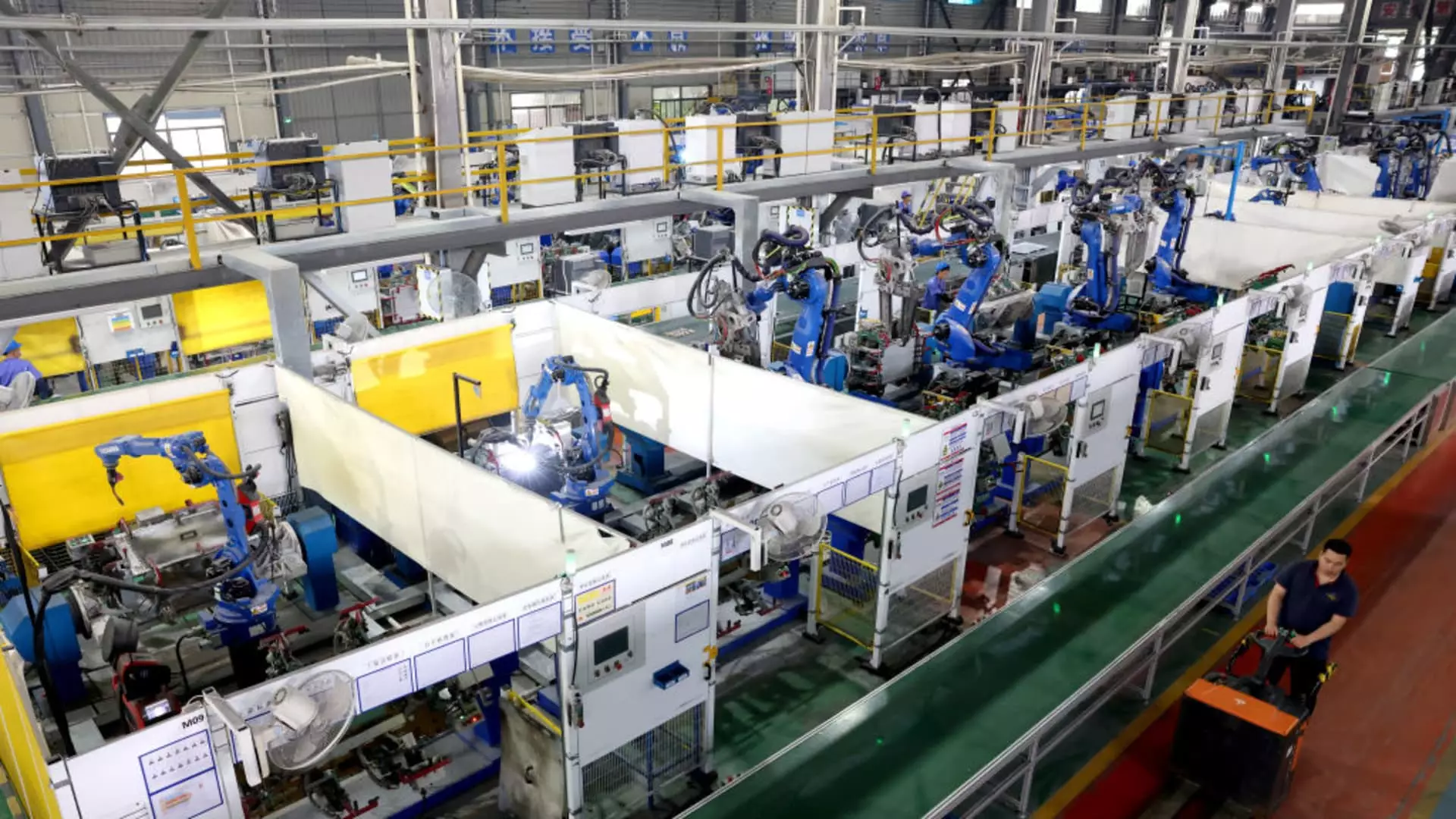European companies operating in China are facing mounting challenges as the country’s economic growth slows and overcapacity issues become more prevalent. A recent survey conducted by the EU Chamber of Commerce in China revealed that businesses in the region are finding it increasingly difficult to generate profits, with only 30% of respondents reporting higher profit margins in China compared to their worldwide averages. This marks an eight-year low and underscores the growing obstacles faced by foreign companies in the Chinese market.
In addition to dwindling profit margins, European businesses in China are encountering delays in receiving payments, making it harder to enforce contracts. The chapter head of the EU Chamber of Commerce in China, Carlo D’Andrea, highlighted that state-owned enterprises are utilizing these payment delays as a means to secure defacto loans from smaller businesses. This tactic is putting further financial strain on European companies, particularly small and medium enterprises, operating in China.
China’s economic growth has been on a downward trajectory in recent years, exacerbated by geopolitical tensions and a slump in the real estate sector. The Chamber’s survey indicates that the current economic slowdown in China has similarities to previous cycles, raising concerns about the duration and severity of the downturn. With trade tensions escalating and Beijing’s focus on manufacturing, foreign companies are finding it increasingly challenging to thrive in the Chinese market.
The survey conducted by the EU Chamber of Commerce in China also revealed growing concerns over overcapacity in various industries, such as civil engineering, construction, and automotive. More than one-third of respondents observed overproduction in their sectors, leading to price drops and reduced profit margins. This issue is not exclusive to European companies but is equally detrimental to Chinese businesses, signaling a broader challenge within the Chinese economy.
While Chinese authorities have made efforts to attract foreign investment by implementing policies such as visa-free travel and tax exemptions, there is a consensus among business organizations that more needs to be done to improve the business environment for foreign companies. The EU Chamber’s survey highlighted a record number of respondents expressing skepticism about their growth potential in China, as well as concerns about regulatory barriers hindering business operations.
As companies grapple with ongoing pressures and uncertainties in the Chinese market, there is a realization that some of these challenges may have a more permanent impact. The evolving nature of competition, shifting demand patterns, and regulatory hurdles are prompting European businesses to reevaluate their strategies and operations in China. With record numbers of respondents expressing doubts about profitability and growth prospects in the region, foreign companies face an uphill battle in navigating the complexities of the Chinese market.
European companies operating in China are confronting a myriad of challenges ranging from financial pressures and overcapacity issues to regulatory barriers and economic uncertainties. As the Chinese economy undergoes structural shifts and geopolitical dynamics evolve, foreign companies must adapt and innovate to sustain their presence in this competitive market. By addressing these challenges head-on and advocating for reforms that promote a more conducive business environment, European companies can navigate the complexities of the Chinese market and position themselves for long-term success.


Leave a Reply